|
Thank you so much for reading our daily Lenten Scriptural Commentary series! We hope that you found them helpful and edifying. To conclude, theologian and Fully Alive founder Erik Ritland gives his personal thoughts on Easter. Thanks again! The Good News of Easter is that we have hope because God is alive. Our lives are not meaningless. Life is not meaningless. The God who created the world lives, and He desires intimacy with us. All we have to do is accept the gift that He offers.
This is an amazing reality! The miracle of the resurrection - and if the God who created the world exists, surely He can perform a miracle now and again - validates all that Jesus said about Himself. He is the way, the truth, and the life: the way of freedom from our guilt, the personification and actualization of all truth, and the path to a life that is truly full. The Kingdom of faith, hope, and love that He inaugurated fundamentally transformed the world, and it continues to do so in the people who follow Him - the light of the world, the salt of the earth. On Easter, Christians proclaim a message of hope to all humanity: God is alive! Erik Ritland is a writer and musician. The founder of Fully Alive Christian Media, he also created The Minnesota Sport Ramble and is a writer and copy editor for Music in Minnesota. He was Lead Staff Writer for Minnesota culture blogs Curious North and Hometown Hustle. Reach him via email.
0 Comments
by Erik Ritland
“If Jesus is the truth, then he sets us free from the guilt of our wrongdoing. He sets the world straight. He makes it so that even the most unbearable things in life can be bearable. He makes it possible for us to become the best version of ourselves, to be fully alive.” Fully Alive’s Lenten Scriptural Commentary helps Christians get more out of Lent by taking God’s word seriously. Mostly avoiding personal stories and anecdotes, our commentary dives deeply into the scripture readings for each day and applies them to the broader context of Lent. We use the daily Mass readings from the Catholic lectionary. If possible, read each passage slowly, taking in each word. If you find that you’ve hurried through a reading, read it over a few more times. Let the words reverberate in your heart. After you’ve let it sink in, read our Lenten Scriptural Commentary. Good Friday Isaiah gives a vivid description of the crucifixion – several hundred years before it happens. The reading from Hebrews gets to the crux of the crucifixion, and we hear John’s description of exactly what happened. Readings: Is 52:13—53:12/Heb 4:14-16; 5:7-9/Jn 18:1—19:42 Click here to read the complete text from the USCCB website Yet it was our infirmities that he bore, our sufferings that he endured, while we thought of him as stricken, as one smitten by God and afflicted. But he was pierced for our offenses, crushed for our sins; upon him was the chastisement that makes us whole, by his stripes we were healed. We had all gone astray like sheep, each following his own way; but the LORD laid upon him the guilt of us all. (cf. Is 52: 13- 53:12) For we do not have a high priest who is unable to sympathize with our weaknesses, but one who has similarly been tested in every way, yet without sin. So let us confidently approach the throne of grace to receive mercy and to find grace for timely help. (cf. Heb 4:14ff) Much ink has been spilled attempting to answer questions like, “What exactly does the crucifixion mean? What exactly did it do? What exactly does it mean for us?” The scholarly words for the study of such questions are Christology and Soteriology. The deeper down you get the more questions there are, but on the surface the answer from Scripture is clear: in the crucifixion, God Himself takes on all the evil of the world to disarm it of all of its power. This is the only way that the power of evil can be taken away completely and for good. Yes, we still live in a fallen world. But no matter what terrible things happen to us, we can call on a God who has been to the very depths, and can thus relate to the depths of the problems that we go through, and can help us through them in the most intimate way. So Pilate said to him, "Then you are a king?" Jesus answered, "You say I am a king. For this I was born and for this I came into the world, to testify to the truth. Everyone who belongs to the truth listens to my voice." Pilate said to him, "What is truth?" (cf Jn 18:1-19:42) This is possibly the most enigmatic scene in all of Scripture. When Pilate asks Jesus, “Then you are a king?,” he isn’t simply trying to get to the bottom of what is going on. He's trying to see if Jesus poses any political threat. If Jesus claims He is a king, then he is indeed a rebel who needs to be put to death. As the crowd so eerily reminds us, Romans are to have no king but Caesar. Jesus’ answer gets to a deeper truth: His Kingdom isn’t of this world. He poses no threat to Pilate’s temporal, temporary, illusory power. His Kingdom transcends such petty concerns. “What is truth?” Pilate’s direct answer is another contrast to Jesus’ otherworldly words. It's such a stark, profound question. It jumps out at you from the page, catches you off-guard when you hear it read out loud. From the Christian perspective, Jesus is the truth, adding a layer of irony to Pilate’s question. He asks “what is truth” as he is literally staring truth in the face. What does it mean that Jesus is the truth? Most fundamentally, it means that He is God, and that He brings God’s message and God’s Kingdom into the world. If God exists, and if Jesus is God in human flesh, then this is not some great mystery – it is intuitive. What else would God bring to the world other than truth? If Jesus is the truth, then he sets us free from the guilt of our wrongdoing. He sets the world straight. He makes it so that even the most unbearable things in life can be bearable. He makes it possible for us to become the best version of ourselves, to be fully alive. And that is the good news of Good Friday. Erik Ritland is a writer and musician. The founder of Fully Alive Christian Media, he also created The Minnesota Sport Ramble and is a writer and copy editor for Music in Minnesota. He was Lead Staff Writer for Minnesota culture blogs Curious North and Hometown Hustle. Reach him via email. by John Morton
"Christ redeemed us all and gave perfect glory to God principally through his paschal mystery: dying he destroyed our death and rising he restored our life. Therefore the Easter Triduum of the passion and resurrection of Christ is the culmination of the entire liturgical year." (General Norms for the Liturgical Year and the Calendar, # 18. Second Vatican Council) Fully Alive’s Lenten Scriptural Commentary helps Christians get more out of Lent by taking God’s word seriously. Mostly avoiding personal stories and anecdotes, our commentary dives deeply into the scripture readings for each day and applies them to the broader context of Lent. We use the daily Mass readings from the Catholic lectionary. If possible, read each passage slowly, taking in each word. If you find that you’ve hurried through a reading, read it over a few more times. Let the words reverberate in your heart. After you’ve let it sink in, read our Lenten Scriptural Commentary. Holy Thursday In the Old Testament reading today, Isaiah explains the joy God’s people will have upon the fulfillment of his promises: rejoicing, an end to subjugation, salvation. The second reading touches on Christ’s second coming, which reminds us that we ought to willingly submit, receive, and honor Him. In the Gospel, Christ goes back to where his earthly life began, Nazareth, and makes clear His purpose, and His essence. Through His act of sacrifice, God’s love frees those who are spiritually oppressed, and heals those who are spiritually broken. Readings: Is 61:1-3a, 6a, 8b-9 / Rv 1:5-8 / Lk 4:16-21 (from the Chrism Mass) Click here to read the complete text from the USCCB website He unrolled the scroll and found the passage where it was written: The Spirit of the Lord is upon me, because he has anointed me to bring glad tidings to the poor. He has sent me to proclaim liberty to captives and recovery of sight to the blind, to let the oppressed go free, and to proclaim a year acceptable to the Lord. He said to them, "Today this Scripture passage is fulfilled in your hearing." (cf. Lk 4:17-19, 21) Holy Thursday begins the Paschal Triduum, the most solemn of days of the liturgical year during which we recount the last three days of Christ’s life. We have been preparing for this for the past 40 days, and now we make our first entrance into the Easter season. Christians have a different understanding of time that is based on the liturgical calendar. Each year teaches us the story of our Savior. All of the feasts and fasts point to the salvation, the great offer of grace, that culminates in the season of Easter. On Holy Thursday, we celebrate the Mass of the Lord’s Supper, where we relive the institution of the Eucharist and the establishment of the priesthood. One of the most moving features of this mass, though optional, is the washing of the feet. With the example of Christ, who humbled himself and washed the feet of the apostles, the priest does the same, and reminds us of his role as a servant. But as Christians, we are a part of the “universal priesthood," and as such we are all called to serve. During the season of Lent we are called to focus on three things; prayer, fasting, and alms-giving. Today we should be asking ourselves: how do we fulfill that call to alms-giving? Do we act as Christ, making ourselves servants to those around us? Do we bring glad tidings, proclaim liberty, and seek to heal those in need? John Morton is a writer, historian, and theologian from Minnesota. He founded Fully Alive with Erik Ritland in 2017. In addition to writing articles, he is also the podcast co-host and social media content strategist. by Erik Ritland
"As Dante rightly points out by putting betrayers in the lowest rung of his Inferno, it is the darkness of betrayal that cuts to the heart in the most profound way. It's no surprise that Judas was so full of grief that he ended up killing himself." Fully Alive’s Lenten Scriptural Commentary helps Christians get more out of Lent by taking God’s word seriously. Mostly avoiding personal stories and anecdotes, our commentary dives deeply into the scripture readings for each day and applies them to the broader context of Lent. We use the daily Mass readings from the Catholic lectionary. If possible, read each passage slowly, taking in each word. If you find that you’ve hurried through a reading, read it over a few more times. Let the words reverberate in your heart. After you’ve let it sink in, read our Lenten Scriptural Commentary. Wednesday of Holy Week In today’s readings, Isaiah speaks of the mysterious Suffering Servant and Judas seals his fate. Readings: Is 50:4-9a/Mt 26:14-25 Click here to read the complete text from the USCCB website See, the Lord GOD is my help; who will prove me wrong? (cf Is 50: 4-9a) Jesus makes it very clear, especially in the Gospel of John, that He does His work through the power of God the Father. That is why He is able to preach His message fearlessly. That is why He is able to ascend to Calvary with faith, knowing that God will help Him. The same God that helped Jesus and gave Him power – the very same God, the very same power – is available to all of us, if only we’ll accept the life-changing invitation. When it was evening, he reclined at table with the Twelve. And while they were eating, he said, "Amen, I say to you, one of you will betray me." Deeply distressed at this, they began to say to him one after another, "Surely it is not I, Lord?" He said in reply, "He who has dipped his hand into the dish with me is the one who will betray me. The Son of Man indeed goes, as it is written of him, but woe to that man by whom the Son of Man is betrayed. It would be better for that man if he had never been born." Then Judas, his betrayer, said in reply, "Surely it is not I, Rabbi?" He answered, "You have said so." (cf. Mt 26: 14-25) Psalm 41:9 predicted this scene chillingly: “Yea, mine own familiar friend, in whom I trusted, which did eat of my bread, hath lifted up his heel against me.” The darkness of sin was all around Jesus during His final hours: the darkness of temptation, the darkness of denial, the darkness of abandonment, the darkness of cowardice. But as Dante rightly points out by putting betrayers in the lowest rung of his Inferno, it is the darkness of betrayal that cuts to the heart in the most profound way. It's no surprise that Judas was so full of grief that he ended up killing himself. But it didn’t have to be that way. It has been rightly said that Judas’ greatest sin wasn’t his betrayal, but that he didn’t seek forgiveness. All Judas had to do was repent of his wrongdoing and Jesus would have welcomed him back with open arms. God seeks this same repentance from all of us, and it is our repentance that makes us right with Him and sets us free in the most profound way. Erik Ritland is a writer and musician. The founder of Fully Alive Christian Media, he also created The Minnesota Sport Ramble and is a writer and copy editor for Music in Minnesota. He was Lead Staff Writer for Minnesota culture blogs Curious North and Hometown Hustle. Reach him via email. by Erik Ritland
"In the cross, Jesus sets everything right." Fully Alive’s Lenten Scriptural Commentary helps Christians get more out of Lent by taking God’s word seriously. Mostly avoiding personal stories and anecdotes, our commentary dives deeply into the scripture readings for each day and applies them to the broader context of Lent. We use the daily Mass readings from the Catholic lectionary. If possible, read each passage slowly, taking in each word. If you find that you’ve hurried through a reading, read it over a few more times. Let the words reverberate in your heart. After you’ve let it sink in, read our Lenten Scriptural Commentary. Tuesday of Holy Week In the first reading from Isaiah, God promises that His Kingdom will be open to all people. In the Gospel, the drama of Jesus’ passion begins. Readings: Is 49:1-6/Jn 13:21-33, 36-38 Click here to read the complete text from the USCCB website It is too little, he says, for you to be my servant, to raise up the tribes of Jacob, and restore the survivors of Israel; I will make you a light to the nations, that my salvation may reach to the ends of the earth. (cf. Is 24: 1-6) One revolutionary aspect of Jesus’ teaching is that access to God was no longer restricted to the Israelites, but was now available to all people. This was seen as a scandal to the Israelites of Jesus’ time, but the promise of such a move by God is repeated over and over in the Old Testament, as it is in this reading. Christ, through the work of the Church that He established, is “the light to the nations” that spreads the message of salvation to “the ends of the earth.” When he [Judas] had left, Jesus said, "Now is the Son of Man glorified, and God is glorified in him. If God is glorified in him, God will also glorify him in himself, and he will glorify him at once. (cf. Jn 13: 21-33, 36-38) When you look at the cross, it’s easy to see gory, hard to see glory. The world still scoffs: this is your God? This is glory? That’s the entire point, though. In the cross, Jesus sets everything right. He sets each individual right in their hearts, freeing them from the guilt for the things they do wrong. He sets the world right, by His Kingdom message of peace, faith, hope, and love spreading throughout the world. Erik Ritland is a writer and musician. The founder of Fully Alive Christian Media, he also created The Minnesota Sport Ramble and is a writer and copy editor for Music in Minnesota. He was Lead Staff Writer for Minnesota culture blogs Curious North and Hometown Hustle. Reach him via email. by Erik Ritland
“Justice has indeed been established on earth, but it is up to each of us to live in it and perpetuate it.” Fully Alive’s Lenten Scriptural Commentary helps Christians get more out of Lent by taking God’s word seriously. Mostly avoiding personal stories and anecdotes, our commentary dives deeply into the scripture readings for each day and applies them to the broader context of Lent. We use the daily Mass readings from the Catholic lectionary. If possible, read each passage slowly, taking in each word. If you find that you’ve hurried through a reading, read it over a few more times. Let the words reverberate in your heart. After you’ve let it sink in, read our Lenten Scriptural Commentary. Monday of Holy Week In today’s Gospel, Mary anoints Jesus for burial. She is preparing Him to inaugurate the Kingdom that Isaiah speak of in the first reading. Readings: Is 42:1-7/Jn 12:1-11 Click here to read the complete text from the USCCB website Here is my servant whom I uphold, my chosen one with whom I am pleased, Upon whom I have put my Spirit; he shall bring forth justice to the nations, Not crying out, not shouting, not making his voice heard in the street. A bruised reed he shall not break, and a smoldering wick he shall not quench, Until he establishes justice on the earth; the coastlands will wait for his teaching. (cf Is 42: 1-7) As we’ve seen throughout Lent, the Kingdom that Jesus establishes is foreshadowed all over the Old Testament. Isaiah explains that this Kingdom will be led by a meek servant who will bring justice to the world. But how can this be? Isn’t the world the same now as it was back then, dealing with the same and sometimes worse issues of injustice? Jesus fulfilled God’s promises of justice that were laid out in the Old Covenant through His entire work: His teaching, actions, death, resurrection, and the establishment of His Church. Those who follow Him are called to bring this justice in the world. Justice has indeed been established on earth, but it is up to each of us to live in it and perpetuate it. Then Judas the Iscariot, one of his disciples, and the one who would betray him, said, "Why was this oil not sold for three hundred days' wages and given to the poor?" He said this not because he cared about the poor but because he was a thief and held the money bag and used to steal the contributions. So Jesus said, "Leave her alone. Let her keep this for the day of my burial. You always have the poor with you, but you do not always have me." (cf. Jn 12: 1-11) There are few things that are more important to Jesus than charity. Preparing His body for burial was one of them. To understand this, we must meditate on the gravity of the situation. For Christians, Jesus’ Passion is the single most important event in human history. We’ve heard the stories so much that it’s sometimes easy to forget basic facts: Jesus was indeed a human being, He did walk this earth, He was true man. What Mary does is a symbolic gesture that emphasizes that Jesus’ human form was important, and that what He was about to go through was the pinnacle of human history. Erik Ritland is a writer and musician. The founder of Fully Alive Christian Media, he also created The Minnesota Sport Ramble and is a writer and copy editor for Music in Minnesota. He was Lead Staff Writer for Minnesota culture blogs Curious North and Hometown Hustle. Reach him via email. by Erik Ritland
"There are some who think that Jesus was a failed insurrectionist. There is plenty of evidence that throws this assumption into serious question, not the least is that there is no hint in Jesus’ teachings or actions that He was insurrectionist in any sort of way. The disciples of every failed insurrectionist scattered, their dreams dead. With Jesus, something was different." Fully Alive’s Lenten Scriptural Commentary helps Christians get more out of Lent by taking God’s word seriously. Mostly avoiding personal stories and anecdotes, our commentary dives deeply into the scripture readings for each day and applies them to the broader context of Lent. We use the daily Mass readings from the Catholic lectionary. If possible, read each passage slowly, taking in each word. If you find that you’ve hurried through a reading, read it over a few more times. Let the words reverberate in your heart. After you’ve let it sink in, read our Lenten Scriptural Commentary. Palm Sunday We begin our journey through Holy Week by hearing the story of Jesus’ passion, from his Triumphal Entry to His crucifixion. This is the most important week in history, and the liturgies we participate in re-present it to us in the here and now. Readings: Lk 19:28-40 (37)/Is 50:4-7/Phil 2:6-11/Lk 22:14—23:56 Click here to read the complete text from the USCCB website As he rode along, the people were spreading their cloaks on the road; and now as he was approaching the slope of the Mount of Olives, the whole multitude of his disciples began to praise God aloud with joy for all the mighty deeds they had seen. They proclaimed: "Blessed is the king who comes in the name of the Lord. Peace in heaven and glory in the highest." Some of the Pharisees in the crowd said to him, "Teacher, rebuke your disciples." He said in reply, "I tell you, if they keep silent, the stones will cry out!" (cf. Lk 19: 28-40) Before we go to the depths with Christ, we celebrate His triumphant entry into Jerusalem with great joy. In this action, which is rife with symbolism, Jesus is rides into Jerusalem as its king and savior. That he does so on a lowly donkey shows that His Kingdom is not going to be one of force and violence. As the angels rejoiced at Christ’s birth, so the people rejoice as He begins His important work, what He was born to do. Then an argument broke out among them about which of them should be regarded as the greatest. He said to them, "The kings of the Gentiles lord it over them and those in authority over them are addressed as 'Benefactors'; but among you it shall not be so. Rather, let the greatest among you be as the youngest, and the leader as the servant. (cf. Lk 22:14-23:56) There are some who think that Jesus was a failed insurrectionist. There is plenty of evidence that throws this assumption into serious question, not the least is that there is no hint in Jesus’ teachings or actions that He was insurrectionist in any sort of way. The disciples of every failed insurrectionist scattered, their dreams dead. With Jesus, something was different. That difference is that Jesus was ushering in a Kingdom of humility. Instead of using force and violence, He allowed all the forces of evil to do their worst to Him, taking it all on Himself so that it lost the ultimate power it had over humanity. This is diametrically opposed to ushering in a Kingdom of pride promulgated by evil and violence. This Palm Sunday, meditate on how radical that is, and how amazing it is that God consistently defies our expectations. Erik Ritland is a writer and musician. The founder of Fully Alive Christian Media, he also created The Minnesota Sport Ramble and is a writer and copy editor for Music in Minnesota. He was Lead Staff Writer for Minnesota culture blogs Curious North and Hometown Hustle. Reach him via email. by Erik Ritland
"There is bitter irony in Caiaphas’ statement. “It is better for you that one man should die instead of the people of God.” He meant this literally: he thought that, if Jesus survived, it’d be the end of Israel, the end of relative peace with Rome, the end of the traditions that it was his job to protect. To not understand where Caiaphas was coming from is to be incredibly short-sighted." Fully Alive’s Lenten Scriptural Commentary helps Christians get more out of Lent by taking God’s word seriously. Mostly avoiding personal stories and anecdotes, our commentary dives deeply into the scripture readings for each day and applies them to the broader context of Lent. We use the daily Mass readings from the Catholic lectionary. If possible, read each passage slowly, taking in each word. If you find that you’ve hurried through a reading, read it over a few more times. Let the words reverberate in your heart. After you’ve let it sink in, read our Lenten Scriptural Commentary. Saturday of the Fifth Week of Lent The prophet Ezekiel describes what God’s Kingdom will look like, and Jesus’ fate begins to get sealed. Readings: Ez 37:21-28/Jn 11:45-56 Click here to read the complete text from the USCCB website No longer shall they defile themselves with their idols, their abominations, and all their transgressions. I will deliver them from all their sins of apostasy, and cleanse them so that they may be my people and I may be their God. (cf. Ez 37: 21-28) Ezekiel packs an incredible amount of descriptions of God’s Kingdom into one relatively short reading. The Kingdom will be united, will have a savior at its head, will live by God’s commands, and will have God dwell intimately with them. Sound familiar? But one of them, Caiaphas, who was high priest that year, said to them, "You know nothing, nor do you consider that it is better for you that one man should die instead of the people, so that the whole nation may not perish." He did not say this on his own, but since he was high priest for that year, he prophesied that Jesus was going to die for the nation, and not only for the nation, but also to gather into one the dispersed children of God. (cf. Jn 11: 45-56) There is bitter irony in Caiaphas’ statement. “It is better for you that one man should die instead of the people of God.” He meant this literally: he thought that, if Jesus survived, it’d be the end of Israel, the end of relative peace with Rome, the end of the traditions that it was his job to protect. To not understand where Caiaphas was coming from is to be incredibly short-sighted. Of course, what he said was true in a way that he never could have understood. Indeed, one man did die instead of the people of God. But it was the fulfillment of the Jewish story, not a subversion and perversion of it. Erik Ritland is a writer and musician. The founder of Fully Alive Christian Media, he also created The Minnesota Sport Ramble and is a writer and copy editor for Music in Minnesota. He was Lead Staff Writer for Minnesota culture blogs Curious North and Hometown Hustle. Reach him via email. The Life-Altering Choice We Can’t Weasel Our Way Out Of (Lenten Scriptural Commentary #38)4/12/2019 by Erik Ritland
"Although Jesus cried from the cross, “My God, my God, why hast thou forsaken me?” – an act in which God went to the depths of Godforsaken-ness so He could be one with those who feel the darkest Godforsaken-ness – His apparent failure was God’s ultimate plan." Fully Alive’s Lenten Scriptural Commentary helps Christians get more out of Lent by taking God’s word seriously. Mostly avoiding personal stories and anecdotes, our commentary dives deeply into the scripture readings for each day and applies them to the broader context of Lent. We use the daily Mass readings from the Catholic lectionary. If possible, read each passage slowly, taking in each word. If you find that you’ve hurried through a reading, read it over a few more times. Let the words reverberate in your heart. After you’ve let it sink in, read our Lenten Scriptural Commentary. Friday of the Fifth Week of Lent Words of the prophet Jeremiah look ahead to Holy Week, and Jesus continues to make His identity as the Son of God plain for all to see. Readings: Jer 20:10-13/Jn 10:31-42 Click here to read the complete text from the USCCB website I hear the whisperings of many: "Terror on every side! Denounce! let us denounce him!" All those who were my friends are on the watch for any misstep of mine. "Perhaps he will be trapped; then we can prevail, and take our vengeance on him." But the LORD is with me, like a mighty champion: my persecutors will stumble, they will not triumph. In their failure they will be put to utter shame, to lasting, unforgettable confusion. (cf Jer 20: 10-13) This is practically a commentary on Jesus’ passion, only it was written 600 years beforehand. Jesus’ friend, Judas, watched for His missteps, or at least His perceived missteps. The priests, scribes, and rabble all shouted: “Denounce! Let us denounce him! Perhaps we can prevail, and take our vengeance on him.” Although Jesus cried from the cross, “My God, my God, why hast thou forsaken me?” – an act in which God went to the depths of Godforsaken-ness so He could be one with those who feel the darkest Godforsaken-ness – His apparent failure was God’s ultimate plan. Those against Him did not triumph, and in their failure they were put to utter shame. “If I do not perform my Father's works, do not believe me; but if I perform them, even if you do not believe me, believe the works, so that you may realize and understand that the Father is in me and I am in the Father." (cf. Jn 10: 31-42) If the Father is not in Jesus, then He is a liar, He is deceived, He is a fraud. If the Father is in Jesus, however, then God’s work is ultimately fulfilled in Him. This is indeed an all-or-nothing proposition. No amount of pretty words or misguided universalism can cover up this fact. Scripture is clear, Church history is clear. Reason and scholarship point to it. We can’t weasel our way out of it: we each have to choose whether we accept Jesus or we don’t. Erik Ritland is a writer and musician. The founder of Fully Alive Christian Media, he also created The Minnesota Sport Ramble and is a writer and copy editor for Music in Minnesota. He was Lead Staff Writer for Minnesota culture blogs Curious North and Hometown Hustle. Reach him via email. by Erik Ritland
"God has always chosen the lowly to level the playing field, to let the powerful and wordly wise know that it isn’t all about them, to let the poor and lowly know that they are on equal footing with them." Fully Alive’s Lenten Scriptural Commentary helps Christians get more out of Lent by taking God’s word seriously. Mostly avoiding personal stories and anecdotes, our commentary dives deeply into the scripture readings for each day and applies them to the broader context of Lent. We use the daily Mass readings from the Catholic lectionary. If possible, read each passage slowly, taking in each word. If you find that you’ve hurried through a reading, read it over a few more times. Let the words reverberate in your heart. After you’ve let it sink in, read our Lenten Scriptural Commentary. Thursday of the Fifth Week of Lent God’s shocking statement to Abraham, Jesus’ shocking statement to the Jewish people of His time - and to us. Readings: Gn 17:3-9/Jn 8:51-59 Click here to read the complete text from the USCCB website When Abram prostrated himself, God spoke to him: "My covenant with you is this: you are to become the father of a host of nations. No longer shall you be called Abram; your name shall be Abraham, for I am making you the father of a host of nations. I will render you exceedingly fertile; I will make nations of you; kings shall stem from you. I will maintain my covenant with you and your descendants after you throughout the ages as an everlasting pact, to be your God and the God of your descendants after you. (cf. Gn 17: 3-9) When it comes to “the least of these,” Abraham was right up there. An aged nomad with no children whose wife was barren, he was about the last person anybody would expect God to create a great nation from. But as Jesus says, “with God, anything is possible.” More to the point, St. Paul says that “God chose the foolish of the world to shame the wise, and God chose the weak of the world to shame the strong, and God chose the lowly and despised of the world, those who count for nothing, to reduce to nothing those who are something, so that no human being might boast before God” (1 Cor. 1: 27-29). God has always chosen the lowly to level the playing field, to let the powerful and wordly wise know that it isn’t all about them, to let the poor and lowly know that they are on equal footing with them. Without this equalization, humanity becomes brutish, tribal animals. So the Jews said to him, "You are not yet fifty years old and you have seen Abraham?" Jesus said to them, "Amen, amen, I say to you, before Abraham came to be, I AM." So they picked up stones to throw at him; but Jesus hid and went out of the temple area. (cf. Jn 8: 51-59) The chapters of John that we read in these final weeks of Lent can be puzzling. They were puzzling to Jesus’ original audience, to those who first wrote them down and read them, and to us today. This reading, however, is very clear. Jesus declares that He is “I AM” – that He is equal to God the Father. Not surprisingly, this scandalous, seemingly blasphemous statement is not taken well by the Jews of Jesus’ time. After all, if Jesus was not God, what He was saying was indeed blasphemy of the highest order. But if Jesus is God, this is the truth that sets us free. Erik Ritland is a writer and musician. The founder of Fully Alive Christian Media, he also created The Minnesota Sport Ramble and is a writer and copy editor for Music in Minnesota. He was Lead Staff Writer for Minnesota culture blogs Curious North and Hometown Hustle. Reach him via email. |
Authors
Erik Ritland received his MA in Theology in 2017. He's the founder and content manager of Fully Alive Christian Media and Rambling On, copy editor and writer for Music in Minnesota, and an acclaimed songwriter. Archives
April 2019
Categories |
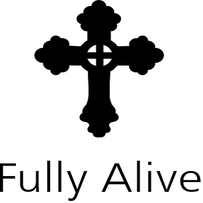
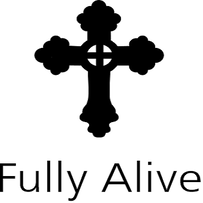
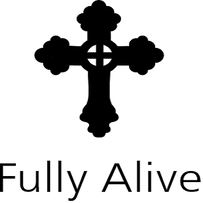
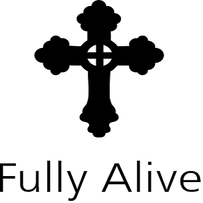
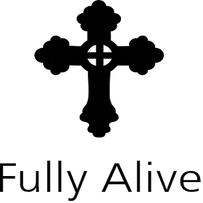
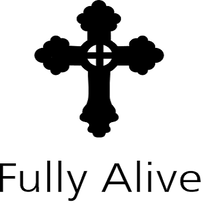
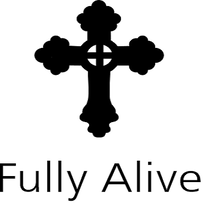
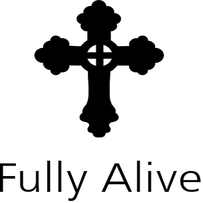
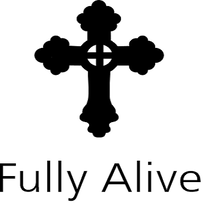
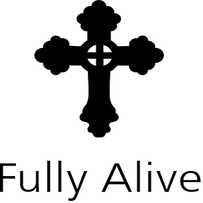
 RSS Feed
RSS Feed
